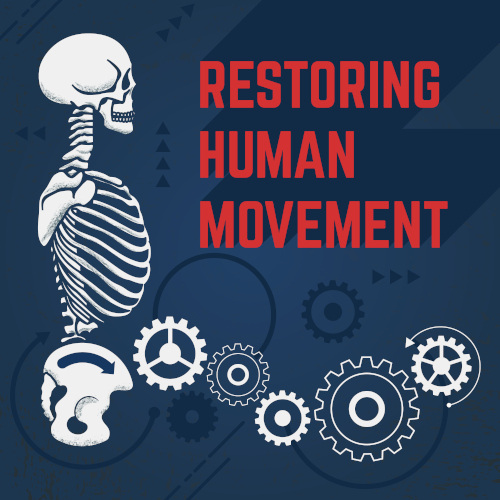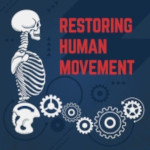How Dr Stuart McGill Would Explain Back Pain To A New Patient
Back pain isn’t the death sentence you think it is. Majority of people can get better with a little understanding and dedication.
Dr. Stuart McGill PhD is a spine biomechanist at the University of Waterloo. Over the years, he has conducted numerous lab experiments on the human spine to figure out how much load it can take, what motions cause it to become injured and more. He’s the author of some awesome books, such as Back Mechanic: The Secrets to a Healthy Spine your Doctor isn’t Telling You, which was written specifically for chronic low back patients to better understand and resolve their condition.
Dr Stuart McGill’s Bio: Dr. McGill is a professor emeritus, University of Waterloo, where he was a professor for 32 years. His laboratory and experimental research clinic investigated issues related to the causal mechanisms of back pain, how to rehabilitate back-pained people and enhance injury resilience and performance. This produced over 240 peer-reviewed scientific journal papers, many international awards, and has mentored over 40 graduate students during this scientific journey.
I’m honored to have him on this podcast session. Our goal today is to breakdown the common questions patients have about back pain. If you’re a healthcare provider you’ll know what questions I’m talking about:
- Should I stretch my back?
- Is my pain from a disc herniation?
- How can I overcome a weak back?
- Why does it hurt when I sit?
These are just a few of the topics. Basically this podcast was designed to fit the best spinal hygiene information within an hour and 15 min block. If you’re a healthcare provider, share this with your patients. If you’re a patient, share this with your doctor or your spouse with back pain.
Get the books today!
– Gift of Injury PERFORMANCE ENHANCEMENT
– Back Mechanic FIX YOUR BACK PAIN
Sebastian’s Youtube Channel
You can access the show notes at https://www.p2sportscare.com/podcast/
Dr. Sebastian Gonzales is an expert in trouble shooting sports injuries and overuse conditions. This podcast is intended for sports medicine topics to become easier for patients and athletes to understand. Don’t get confused by what your doctor told you in your appointment. If you like in Orange County CA, book an exam with Dr. Gonzales, your Huntington Beach Chiropractor.
Here's the start of our show notes. More can be found at P2sportsCare.com
- [Dr. Sebastian Gonzales] So, first off is all low back pain created equal?
- [Dr. Stuart McGill]You're starting with the big philosophical questions first, well I'm going to give you probably a big answer on this, with maybe three levels, some logic, some examples. Let me reverse that a tiny bit and say well have you ever heard of non-specific head pain or leg pain, is leg pain created equal, I mean we don't even put up with such a notion, it could be torn knee ligaments, vascular complaint, a cut or whatever, so this notion of back pain, it is so non-homogeneous, and what I mean by that is one person might have back pain because they've got a disc bulge, the next person might have it for an entirely different reason, so starting out with that logic and setpoint, all back pain has a cause, and if we can obtain a specific and precise diagnosis of the pain mechanism, then we can address it appropriately, so is it created equal, right off the top three contrasting examples of back pain come to mind, think of a person who is in their mid-20s, 30s, 40s, say they work sitting at a computer eight hours a day, sitting at the computer for 20 minutes gives them back pain, and yet they can stand up and go for a three or four mile walk and that would be therapeutic, now let's take the next person who is newly retired, and they have more of a stenosis or arthritic mechanism to their back pain, and interestingly enough the precise opposite occurs, walking starts to cause back pain, and sitting down is relieving, and then I can give a third example, let's take a young athletic team, you can take a football team or a baseball team, and when you study the back pain patterns you will see that they form cluster groups, for example one team might have four stress fractures on their roster, in their back, and those stressed fractures were not caused by baseball, it was caused by the strength and conditioning coach, who was getting them to do full range of motion loaded rotations, and eventually caused a spondylitic fracture, and maybe full-blown spondylolisthesis, so each one of those would have a different time course, a different symptom pattern, and really a very different strategy to address them, and as you know in my books, I give many more examples, but there is an example, one is a programming flaw, one is the person who sits and works at a computer for eight hours, and then goes to gym for one hour at night, and basically does a bodybuilding program, and wonder why they still have pain, had they reassessed the programming to really try and create an antidote for the common stresses of sitting all day, that would be a very different approach than the older adult. So if I could just leave that notion and finish of the answer on a more philosophical level, because I've already talked about the importance of obtaining a precise, diagnosis of the pain mechanism, you know that there is no provision in the current medical system to get a thorough assessment of your back, if the patient is lucky they wait for a while and get a 15 or 20 minute assessment of their back pain, now your practice is probably different than that, I set aside three hours when I see a patient, and we do provocative testing, to really isolate precisely the specific motions postures and loads that trigger their pain, all the time I'm assessing their learning style, so I know how to coach and get what I need from the patient, I let them talk freely and they tell me about the various impediments in their life that have prevented previous attempts to reduce their back pain sensitivity, from working. Et cetera, et cetera. So that is certainly, a huge impediment in the medical system, but what that produces is many clinicians who really haven't been trained in the nuances and mechanisms of this broad spectrum of back pain, they will do some sort of non-specific treatment, to non-specific back pain, and they tell the patient there can't be anything wrong with my therapy, therefore the pain must be in your head. And the patients I get, who failed different approaches, many have been told that the pain is in their head, and this is just a pure default of incompetent clinicians, I've had people, who were on the brink of suicide, they are very solid citizens, some doctor has told them that pain is in their head, when they know it's in their back, and they can change the pain by doing different activities, or avoiding some activities, and it drives them to the brink of some of them considering suicide, so there would be a very iatragenic cause to pain with secondary issues as well, so there is a huge answer to a very huge question, I hope I didn't get too far off topic, but I really wanted to begin with addressing this idea of just generic back pain, there is no such thing, it's all specific and it needs to be sub classified and treated with precision and specificity. - [Dr. Sebastian Gonzales] Okay, you definitely didn't throw me off topic there, there are a couple of things we'll revisit a little bit there, so what I'm hearing is that first off, the majority of back pain has a logical reason, it's mechanical, and it's not in their head, is that what I'm hearing first?
- [Dr. Stuart McGill] Well it does go into their head, when they have been told it's in their head, and it drives them crazy, so that's a little bit off at it depends answer, but generally speaking when their pain mechanisms are recognized, and they address them mechanically, the psychological sub issues can be resolved, but if all you do is treat the psychological through cognitive behavioral approaches et cetera, chances are that pain is going to come back to revisit them.
- [Dr. Sebastian Gonzales] Okay, you said there is three kind of major categories, I guess we can differentiate back pain into, there was the young disc-based person, there was the older arthritic or stenosis, and then there was the special population athletic there in the middle, so each of them I'm guessing, they have different symptom patterns, within each collective group, let's just start with A disk young kid, are all these people going to be the same, or order different subsets in their how they feel and how they respond and so on?
- [Dr. Stuart McGill] Well I teach a master level course in assessment, and the theme is we get right down to a subject category N equals one, and what that means is there are no two back pain mechanisms that are exactly the same, so if we keep slicing it down, what is the magic dose to wind down the pain sensitivity, what is the precise exercise, the order, the dose et cetera, to build that foundation for a pain-free movement, it's going to be slightly different, so you could have two people with exactly the same category, but they are in different positions in the program progression, one might be more advanced, so their program, you don't just give a person a set of exercises and say go away, there you are, you will start by establishing movement patterns, that avoid their pain mechanism and wind it down, and then you might add some hip mobilizing patterns, and then you might add some spine stabilizing patterns, and then if they eventually want to play tennis, you're going to have to add some footwork, but anyway you get the idea, when we're dealing with the person in the thorough assessment, will slice it right down, so they are a category of back pain of one, themselves.
Episode List
Low Back Pain Anatomy And Biomechanics 101
SHOW NOTES I know it sounds boring but it won’t be. If you have back pain you must listen to th...
Slipped A Disc While Weightlifting? Listen to Seth Myers
SHOW NOTES I recently contacted the National Strength and Conditioning Association (NSCA) region dir...
How Dr Stuart McGill Would Explain Back Pain To A New Patient
SHOW NOTES Back pain isn’t the death sentence you think it is. Majority of people can get better w...
Dr. Sebastian’s Personal Hamstring Experience
SHOW NOTES In this podcast I’ll go over my personal experience with a hamstring tear to kick off h...
Hamstring Anatomy Facts And Stories From Anonymous Guests
SHOW NOTES In this session we are going into some personal accounts of hamstring strains. In school,...







